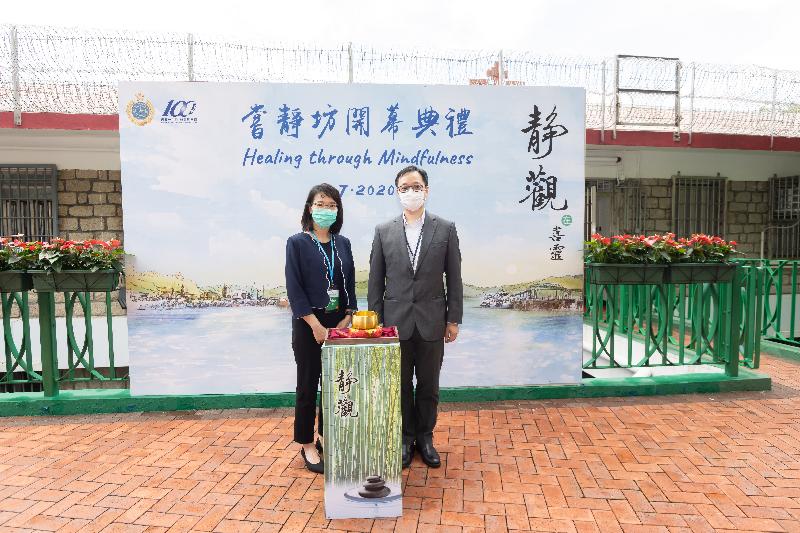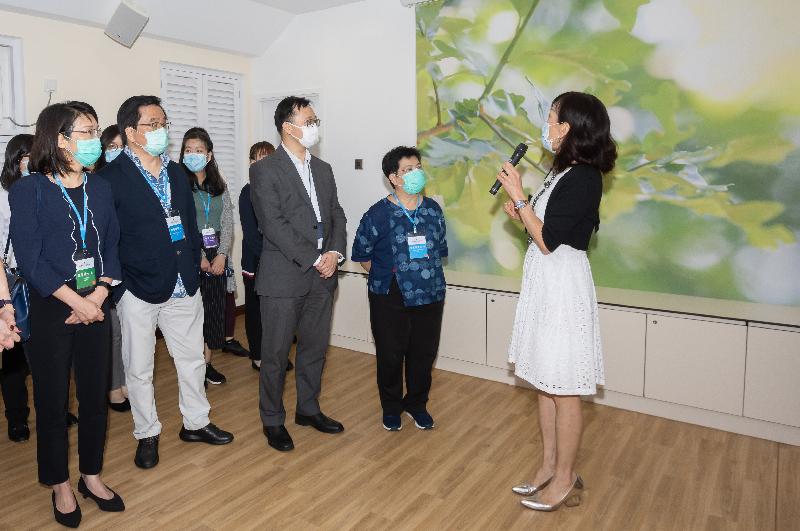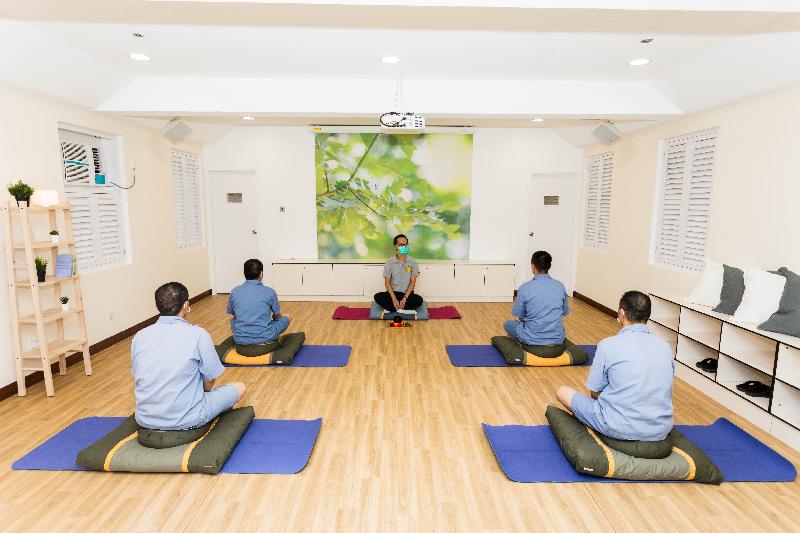CSD launches first mindfulness-based psychological treatment programme for male persons in custody (with photos)
******************************************************************************************
Ms Law said the CSD is taking an innovative approach to include mindfulness in its psychological-based service. The treatment programme takes care of both the psychological development of persons in custody and the strengthening of their determination to accept treatment for drug abuse, which is a forward-looking approach.
The Assistant Commissioner (Rehabilitation) of the CSD, Mr Wan Ming-ki, said, "The opening ceremony today with the theme 'Healing Through Mindfulness' signifies the beginning of a new era of psychological treatment and rehabilitation for drug abusers. We look forward to the continued development of this new service for the betterment of rehabilitation for drug abusers."
Based on the success of its first attempt to bring mindfulness into drug addiction treatment for female drug abusers in Nei Kwu Correctional Institution by creating the "Mindfulness Corner" in 2017, the CSD is pleased to extend this mindfulness initiative with a renewed and comprehensive programme structure to the male PICs in HLTC to enable better recoveries and rehabilitation. The duration of the new programme ranges from 12 to 14 weeks, with separate programme components to specifically address areas such as motivation, craving, negative emotions and life-style changes, with weekly guided mindfulness practices to develop good habits and consolidate therapeutic gains. Participating PICs will reside in the same dormitory to facilitate mutual support in mindfulness practices.
The CSD's Senior Clinical Psychologist, Ms Eva Kwong, said, "Drug abusers in HLTC are a unique group of clients with special treatment needs. Not only are they presented with criminality issues and drug use problems, many of them have a chronic drug use history and have repeatedly failed to quit drugs. They have greater treatment needs, lack self-confidence and are distressed from multiple psychological and family problems. The practice of mindfulness in drug addiction treatment can facilitate PICs in the early identification of high risk factors such as negative emotions and cravings, and enable them to deal with these risk factors more effectively to prevent relapses and improve their resilience to lead a drug-free life."
Ms Kwong added, "Mindfulness involves deliberately paying attention to things we normally would not even notice, and becoming aware of every drug abuser's in-the-moment experience as it arises, non-judgmentally, with kindness and compassion. Drug abusers often avoid problems and negative emotions by taking drugs. Through practicing different mindfulness exercises, including mindful breathing, mindful stretching and body scan, PICs can learn to improve their concentration, awareness and acceptance of internal experiences, allowing them to calmly make wise decisions and therefore stay away from their drug-using lifestyle.
"To facilitate PICs to practice mindfulness, the departmental clinical psychologist team developed their first set of mindfulness cards and a mindfulness journal, which are gender-free treatment materials tailor-made for the local culture in the correctional context to facilitate the easy application and practice of a mindfulness lifestyle beyond the therapeutic room. The use of drawings and writings encourages PICs to freely record their thoughts and feelings regarding daily mindfulness practices, which can further enhance their self-understanding."
Ends/Friday, July 3, 2020
Issued at HKT 20:32
Issued at HKT 20:32
NNNN








